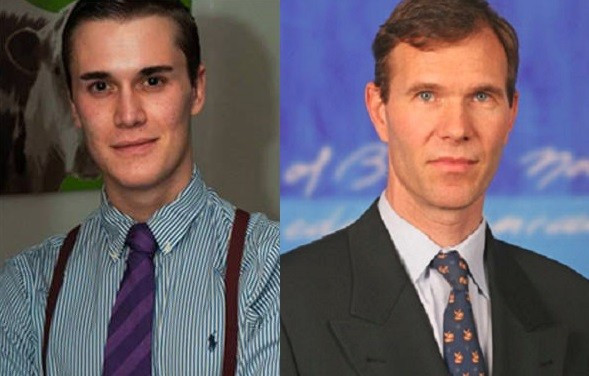Banks Finally Waking Up to Dangers of All-Night Culture

Insanely long hours, intense pressure, and out-right bullying are as much part of the culture of banking as five-figure lunches at the Coq d'Argent and cocaine-fuelled all-night parties.
But banks are desperately trying to change that culture - or at least make it look as if they are - following the death of Moritz Erhardt, a 21-year-old intern at Bank of America Merrill Lynch, and Pierre Wauthier, the numbers chief at Zurich Insurance.
Erhardt, a popular, dedicated and ambitious student described as a "superstar" by colleagues, was found dead in the shower of his east London flat after reportedly working all-night three nights in a row.
He is believed to have died after an epileptic fit whilst attempting a "magic roundabout" - being driven from work to his flat in the early hours to have a shower while the cab waited outside to take him back to the office.
Bank of America said it was "deeply shocked and saddened" by Erhardt's death, and it is creating a special committee of senior bankers and support staff to "review all aspects of this tragedy".
It promised the committee would review "all aspects of working practices with a particular focus on our junior population" and "listen to employees at all levels and... learn from them."
However, interns on the frontline say no matter what lengths bosses go to limit official working hours, ambitious recruits will continue to put in all-nighters.
"It's seen as a badge of honour, and demonstrates your hunger - in what is a summer-only job interview," says an intern at one of the City's biggest banks. "Everyone is desperate to get a job, and one of the best ways to demonstrate your commitment and your hunger is by working the longest hours."
The intern says he and his colleagues are not asked to work all night, but "it's kinda obvious that it is part of the process".
Erhardt was an intensely ambitious young man, who had posted online that he developed a "highly competitive and ambitious nature" as a child. "Already during elementary school, I began playing soccer as well as tennis, I engaged in track and field athletics and I started ski racing," he wrote. " I had a tendency to be over-ambitious, which resulted in several injuries."
Chris Roebuck, a visiting professor of leadership at Cass Business School who has previously held senior human resources roles at big banks, said "statistically this tragedy has been a long time coming".
"If you have interns who are extremely ambitious to advance their careers - and remember these people don't have a job yet - all they can do [to get ahead] is work harder and be in the office longer to send the right message," he said. "Young people, particularly young men, can be so ambitious that their determination to succeed can sometimes exceed their physical ability."
The last few weeks have also shown the dangers of pressure on established business figures who have already risen to the heights of success.
Wauthier, the finance director of insurance giant Zurich, was found dead after taking his own life at his lakeside home in Zug, Switzerland, last week.
In his suicide note Wauthier explicitly blamed Zurich's chairman, Josef Ackermann, for putting him under extreme pressure.
Ackermann has denied the allegations but still resigned from the company with immediate effect.
Zurich's chief executive Martin Senn has insisted there's no evidence of inappropriate tension between Ackermann and Wauthier, but the company is conducting a full-scale investigation.
Roebuck says the case illustrates the difficulties and loneliness of rising to the top. "A the senior level asking for help is seen as a sign of weakness," he said. "Sometimes you can't go and talk to anyone."
Rupert Neate, 03 September 2013
Rupert Neate, a business and finance reporter for the Guardian, will be writing a series of articles on thrills, spills and drama of life in the City for Cityjobs.com
He was shortlisted for Reporter of the Year at the 2012 British Press Awards and the British Journalism Awards for his investigation that led to Liam Fox's resignation as defence secretary. He joined the Guardian in 2011 from the Daily Telegraph, where he worked for four years as City Diary editor and telecoms and technology correspondent.
© Copyright IBTimes 2025. All rights reserved.






















